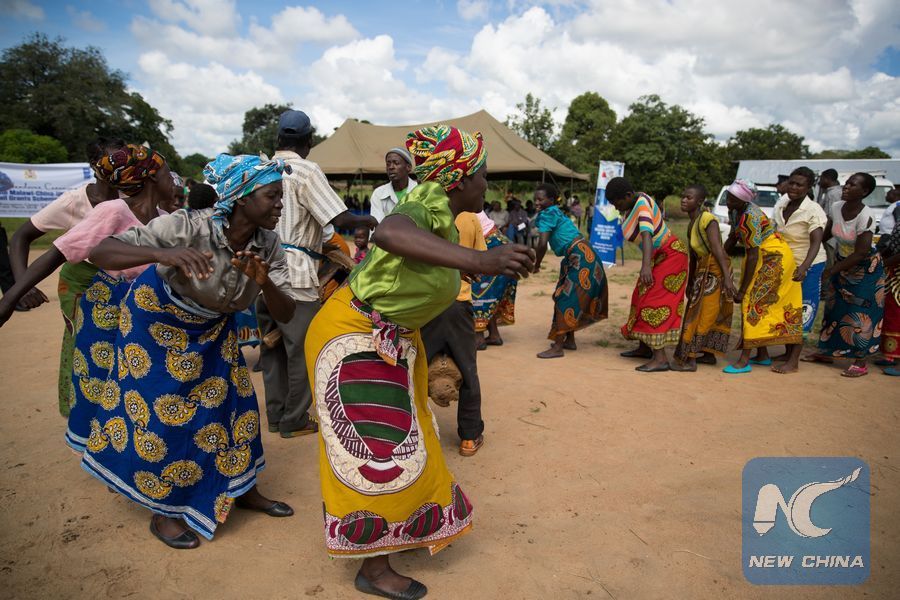
File photo shows people dance in Kombeza area in central Malawi's Salima district, March 16, 2018. (Xinhua/Peng Lijun)
MANGOCHI, Malawi, Dec. 31 (Xinhua) -- One thing that first catches people's attention to Maximas Chimimba's thatched house on the shores of Lake Malawi is a satellite dish on the rooftop.
Chimimba, a fisherman in Mangochi district, is one of the very few Malawians whose households own a television set.
According to a 2014 survey by the National Statistical Office, only 11 percent of the country's households have working television sets.
However, owning a TV set in Malawi is one thing and subscribing to pay content is another.
The 2014 survey showed that only a quarter of the households that own a TV set subscribed to pay TV.
Chimimba, who is in his early 60s, is in the paying category by special arrangement: he is among those who have benefited from a Malawi-China satellite television connection project.
"I had the TV satellite dish mounted in September when our village headman announced that those who can afford to pay a certain reasonable amount can get connected to the satellite TV through the project," Chimimba said.
Chimimba paid 6,000 Malawi kwacha, or about 8 U.S. dollars.
After the installation, Chimimba's family was given three months, from October to December, to watch local and international channels available via the satellite TV for free.
"At the expiry of the three free months of watching, I'll be required to pay a minimum monthly subscription fee of 5,000 Malawi kwacha (about 6.5 dollars) to watch local and international channels available on this TV decoder," he said.
Chimimba is one of thousands of low-income Malawians provided with access to satellite TV channels thanks to the China-Malawi satellite TV connection project.
The project, officially launched in August in Dowa district, 100 km northeast of the Malawi capital, Lilongwe, is part of a Forum on China-Africa Cooperation initiative that aims to provide satellite TV reception to 10,000 African villages.
At the August launch, Chinese Ambassador to Malawi Liu Hongyang said through the project, the Chinese government would donate 500 solar-powered digital TV sets integrated with decoders, 1,000 solar-powered projectors, and 10,000 digital decoder sets.
"This is a happiness project for the two peoples of Malawi and China in their shared pursuit of enhanced bilateral cooperation," Liu said.
Malawi President Peter Mutharika thanked the Chinese government for the initiative, saying it resonates with his development strategy of bringing development to the country's rural masses through Rural Growth Centers.
"Malawi is migrating into a digital world and I want everyone in rural areas to be part of that migration," he said.
"I want rural people to have access to information because informed people make informed choices and decisions," the president said.
China's Star Times Group is implementing the project in Malawi, which will enable locals to watch at least 21 TV channels at affordable cost.
"My family... now has a better way of relaxing by watching channels of their choice, just like anyone living in town out there," Chimimba said.

